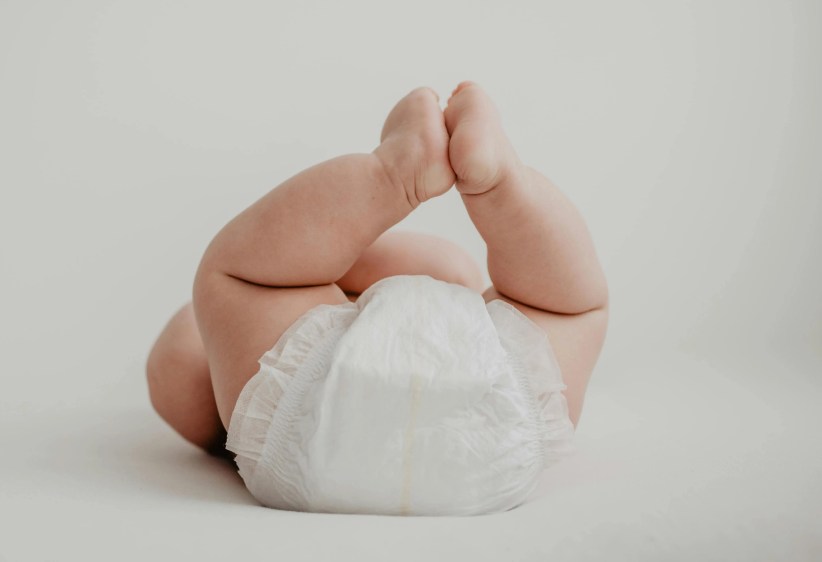One of the most
challenging aspects of working with pregnant and postpartum women is not the
medical situations that may arise but seeing how women still self-blame for
events or behavior that are out of their control. An example I see often is the
new mom with a baby who has completely normal periods of being fussy, and Mom
twists herself into knots trying to find the answer to her little one’s
distress. Is it that I eat dairy? Is it
that baby napped in this blanket rather than the other blanket? Is it that I am
unfit as a mother? In reality, our perspective due to the physical and emotional
exhaustion of becoming a new parent is often vaguely skewed during our early
weeks of newborn hazing.
Pregnancy,
particularly one’s first, can be a time of either confidence boosting or
becoming more insecure about what is to come. Here are some of my top pieces of
advice for pregnant women; some are serious, and some are about having fun. For
all the stresses that can unfold with becoming a new parent, it is still meant
to be a joyful experience. If we can build our physical and emotional confidence
during pregnancy, often the transition to the role of parent is more kind to us
once the baby is here.
Stop the denial. Here is a common pregnancy rationalization I
see: “My doctor is really great clinically but has no bedside manner or time
for me. But if there is an emergency, he/she will be great.” Basically what you
are saying is that your provider will be great about 1% of the time. But don’t you
deserve it all? Raise the bar, challenge yourself to find an obstetrical
provider who is clinically sound but also really nice to you while you are in a
heightened state of vulnerability. If someone is abrupt or impatient with us in
our prenatal visit, how will they care for us when we are in labor? Ask your
girlfriends about what they liked and didn’t like about their OBs, midwives or
family practice doctors. Don’t be afraid to interview providers and tour their
hospitals or birth centers early on. The hunt is worth it: there are great
obstetricians, family doctors and midwives that embody solid clinical practice and compassionate understanding.
Manicures
and massages are a must.
Taking care of you is taking care of the baby. Pregnancy is a time to fill up
physically and emotionally. This means self nurture: good food, rest and
bodywork. And it doesn’t have to be manicures and massages—it could be yoga,
cutting your work from five days a week to four, or splurging on fabulous belly
lotion you use every night. Taking time to do what we personally consider our
“self-care” routines reduces anxiety and reconnects us to the big picture.
Take control
of what you can and let go of what you can’t. This is what we have control over during pregnancy: how we care for
ourselves, our choice of provider and how we prepare ourselves. That’s about
it. Sometimes, because of a heightened awareness of our vulnerability, we try
to ramp up our attempts at control. It can be startling that a very personal
process is being publicly shared. While we are not generally used to sharing
the softer side of ourselves, our fledgling vulnerability becomes our strength
in pregnancy, birthing and parenting. There is a difference between
acknowledging our need for connectedness and being “dependent.” Pregnancy
encourages an interdependence of relationships and community that is essential
to you and your family’s well-being.
Forget
cheese and wine bans. For me,
diet soda is one of the few absolute “no”s. Popular artificial sweeteners have
been linked to some pretty terrible things for developing babies. As for
cheese, it needs to be made with pasteurized milk or aged for 60 days, and it’s
pretty hard to find cheese that doesn’t fall into this category. And if you have
hurdled the first trimester and have a glass of vino at a wedding reception,
your provider will probably reassure you it’s all right. Fetal alcohol syndrome
comes from repeated daily exposure, not a single drink on a special occasion.
I’m guessing that eight months in, we could almost all benefit from some good
cheese and a thimble of wine.
First
trimester prenatal vitamins are not the “be all, end all.” The reality is, we often feel really sick to
our stomachs, and these horse pills tend to aggravate the morning sickness.
Here’s what helps: Take them with meals—dinner rather than morning. A really
great option to try is liquid vitamins, often found in health food stores, or
even the kids’ chewable options. Both of these tend to be much easier on our
fragile sense of smell and stomach in the first weeks of pregnancy.
Pregnancy is about food. There is no better time in our life to look at
the quality of the food we put into ourselves. If we are going to eat greens,
organic greens have more vitamins and minerals and less toxins than
non-organic. Broiled fish has more healthy omegas than fried. The quality of
how food was raised or harvested impacts our growing baby, and in thinking long-term,
the world we raise our child in. One of the top three “green” choices one can
make during pregnancy and parenting is your food sources.
Your life is
not ending—it’s just a new beginning. Your first pregnancy doesn’t have to be the time to finish your thesis,
perfect your job or renovate the kitchen. Since people have started waiting a
little longer to have kids, pregnancy has suddenly become a nine-month deadline
for our great Checklist of Life. Yet, becoming a parent makes you smarter,
teaching you how to share, prioritize, think faster and multitask. All these
skills will help you achieve whatever you think you need to—it just doesn’t
have to be this very second. Personally, I don’t recommend major purchases or
renovations until your kids are past spilling things on the sofa, pulling out
drawers so hard that they break or gouging the walls and scratching the floors
as they move furniture to make forts. We definitely need to get space ready for
the baby but the idea that the whole house has to be ready to begin this
beautifully messy episode of your life may be time and money better spent
elsewhere.
Don’t read (or do stop reading) parenting books
that give you anxiety.
Instead, try some of the books by people such
as Penny Simkin (Pregnancy,
Childbirth, and the Newborn), Sheila
Kitzinger (The
Complete Book of Pregnancy and Childbirth), myself (The Big Book of Birth) and William Sears
(The Pregnancy Book). Some popular
pregnancy books can be experienced as high anxiety. Soon-to-be-mothers need
pregnancy books that increase confidence.
Here’s wishing
you less worry and more enjoyment!
Two Great
Resources For Expectant Parents
Birth360
Erica
Lyon, author of The Big Book of Birth, has recently launched a website
for new and expectant parents, birth360.com. As the founder of Realbirth, Lyon spent seven years
helping more than 12,000 New York parents better understand
childbirth. Now, she’s back with Birth360—a new resource to guide the city’s
childbirth education efforts. With dozens of short and informative films on
everything from surviving postpartum to prepping the older child for the
arrival of a sibling, birth360.com delivers Lyon’s relaxed, humorous yet
practical style to a national audience.
Tribeca Parenting
Lyon is also the consulting Education Director at Tribeca
Parenting (tribecaparenting.com), a citywide pregnancy, postpartum and
parenting education center affiliated with Tribeca Pediatrics. Offering a
variety of classes to help expectant parents through a healthy and happy
pregnancy and delivery, Tribeca Parenting guides new moms and dads through the
exciting transition into parenthood.
For more tips on pregnancy and new parenthood, see our Born & Bred blog at
www.newyorkfamily.com.





















